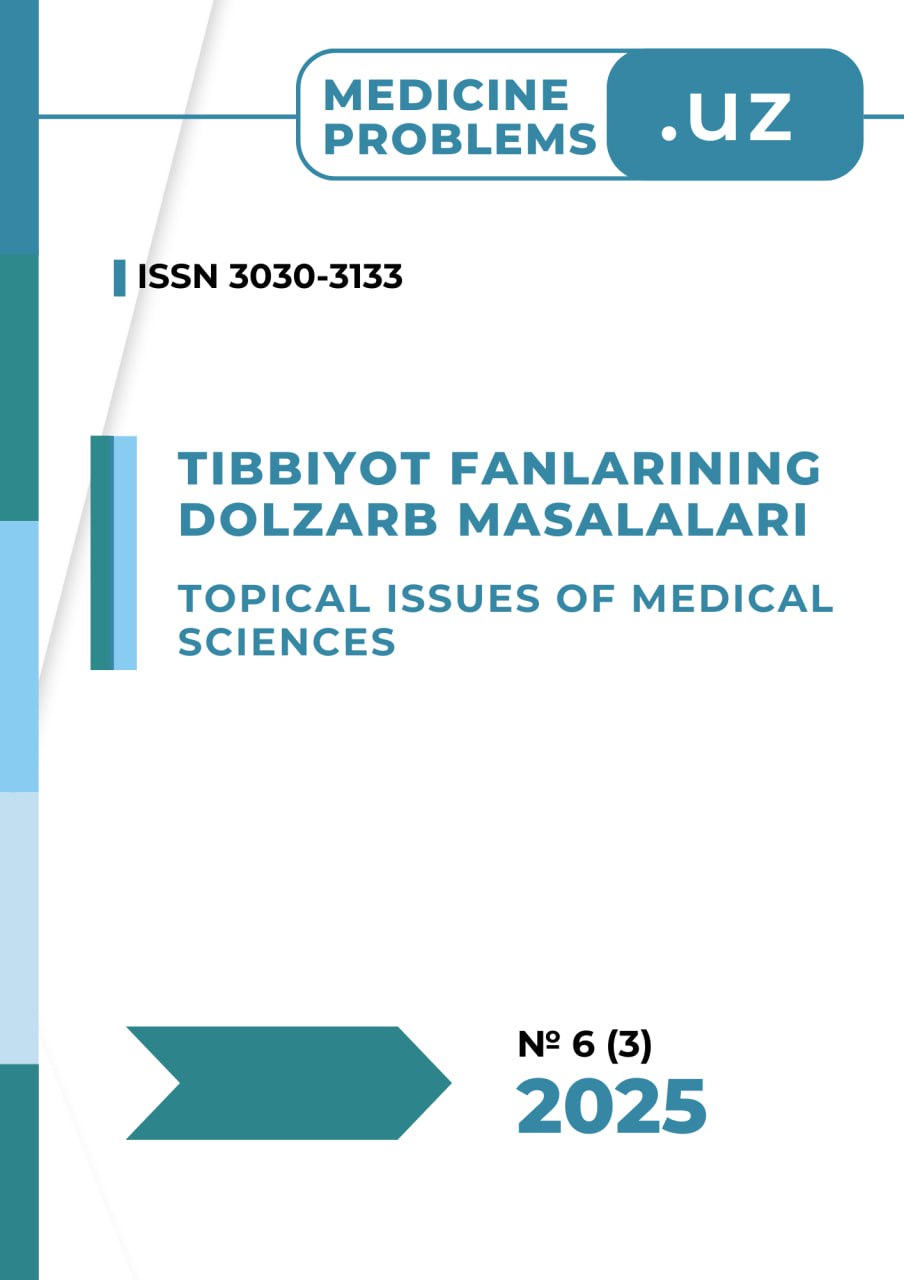THE IMPACT OF METABOLIC AND HEMODYNAMIC FACTORS ON THE DEVELOPMENT OF NEPHROPATHY IN PATIENTS WITH ARTERIAL HYPERTENSION
DOI:
https://doi.org/10.47390/Med-pro/v3i6y2025/N02Keywords:
Arterial hypertension, nephropathy, hemodynamic factors, urea, creatinineAbstract
This article discusses the impact of arterial hypertension on the structure and function of the kidneys, as well as its pathophysiological mechanisms and clinical significance. Metabolic and hemodynamic factors can negatively affect the course and development of the disease, as well as cause severe complications in patients with arterial hypertension and kidney damage
References
1. Asqarov, A., "Hypertension-Induced Renal Changes in Uzbekistan," Uzbekistan Medical Journal, 2022.
2. Chakinala MM, Coyne DW, Benza RL, Frost AE, McGoon MD, Hartline BK, Frantz RP, Selej M, Zhao C, Mink DR, Farber HW. Impact of declining renal function on outcomes in pulmonary arterial hypertension: A REVEAL registry analysis. J Heart Lung Transplant. 2018 Jun;37(6):696-705
3. Kirkham FA, Rankin P, Parekh N, Holt SG, Rajkumar C. Aortic stiffness and central systolic pressure are associated with ambulatory orthostatic BP fall in chronic kidney disease. J Nephrol. 2020 Apr;33(2):317-324.
4. Lundwall K, Jekell A, Desta L, Jacobson SH, Kahan T, Spaak J. Aortic stiffness and aortic-brachial stiffness mismatch as markers of renal dysfunction in hypertension. Blood Press. 2022 Dec;31(1):91-99.
5. Theodorakopoulou MP, Dipla K, Zafeiridis A, Sarafidis P. Εndothelial and microvascular function in CKD: Evaluation methods and associations with outcomes. Eur J Clin Invest. 2021 Aug;51(8):e13557



